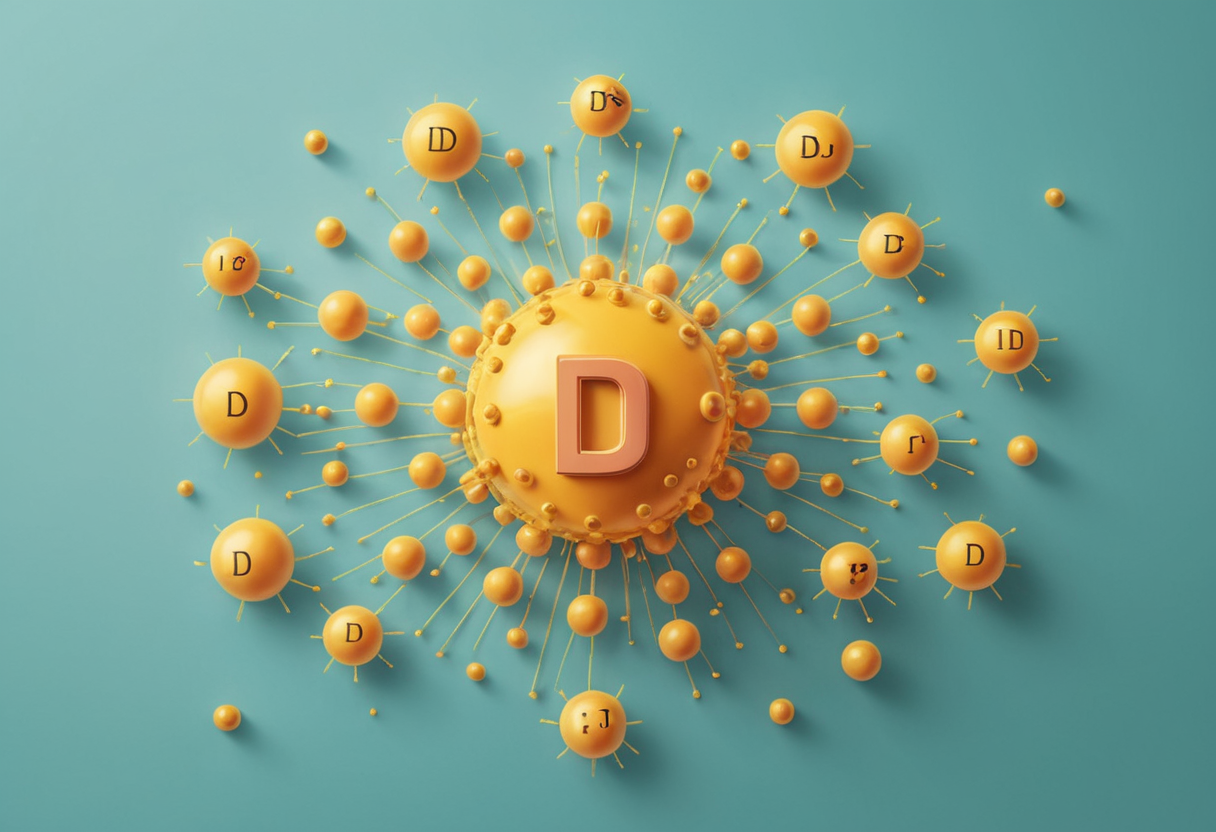
In today’s fast world, having a healthy and strong immune system is much needed. The health of the immune system lays down the basis for one’s overall well-being; it shields people from illnesses and helps recover sooner when they fall sick. Although a good diet, proper workout, and sufficient sleep are important factors in keeping oneself healthy, addition of supplements provides that edge for the immune system. This blog goes deep to cover the five important supplements that will help you in keeping strong and resilient. These include Vitamin A, Vitamin C, Vitamin D, Vitamin E, and Zinc.
Why Immune Health Matters
Your immune system is your body’s first line of defense. It’s like an army, well-trained and always on the lookout for an invasion of bacteria, viruses, and other pathogens. Once it works properly, you are less likely to get sick; if you do, recovery is speedy.
But modern life-stress and lack of sleep, processed foods, environmental toxins-weaken this system. That’s where supplements come in, offering critical nutrients that are often missing from our diet.
1. Vitamin A: The Guardian of Your Immune Barriers
When you think of Vitamin A, the first thing that may come to mind is better eyesight. But did you know that this essential nutrient is also a powerful ally for your immune health?
Why Vitamin A Matters
Vitamin A plays a crucial role in maintaining the integrity of your body’s first line of defense—your skin and mucous membranes. These barriers act as shields, keeping harmful pathogens like bacteria and viruses at bay.
Beyond physical barriers, Vitamin A supports the production and activity of white blood cells, which are the foot soldiers of your immune system. They patrol your body, targeting and eliminating harmful invaders.
Food Sources of Vitamin A
- Carrots
- Sweet potatoes
- Spinach
- Kale
- Liver
Supplementation Tip
When choosing a Vitamin A supplement, look for one that contains both retinol and beta-carotene. This ensures your body gets a balanced form of the nutrient.
Retinol is immediately usable by the body but can lead to toxicity if consumed in excessive amounts.
Beta-carotene offers a safer source since the body converts it as needed, reducing the risk of overdose.
This practical tip simplifies decision-making for consumers seeking effective and balanced supplementation, crucial for enhancing immune health without adverse effects.
Personal Insight: I remember when once I caught the flu that just refused to get better; my doctor advised me to increase my Vitamin A intake, and within days, I felt the difference in the energy and recovery time.
2. Vitamin C: The Ultimate Immune Booster
If there’s a celebrity among vitamins, it’s Vitamin C. This powerhouse nutrient is synonymous with immune health and for good reason.
The Role of Vitamin C in Immunity
Vitamin C is a potent antioxidant, neutralizing free radicals that can damage your cells and weaken your immune system. It also promotes the production of white blood cells and enhances their effectiveness.
Additionally, Vitamin C aids in the repair and growth of tissues, ensuring your body’s defenses are always in top shape.
Everyday Sources of Vitamin C
- Oranges
- Strawberries
- Kiwi
- Bell peppers
- Broccoli
Supplementation Tip
Look for supplements with bioflavonoids, as they improve Vitamin C absorption. Effervescent tablets are a fun and convenient way to meet your daily needs.
Ever wondered why grandma always handed you a glass of orange juice at the first sign of a cold? Well, she was onto something!
3. Vitamin D: The Sunshine Vitamin
Dubbed the “sunshine vitamin,” Vitamin D is essential for much more than strong bones. It’s a game-changer for immune health.
How Vitamin D Supports Immunity
It highlights two key functions:
Enhancing Pathogen-Fighting Cells: Vitamin D boosts the activity of monocytes and macrophages, which are types of white blood cells essential for identifying and destroying harmful microbes. These cells act as your body’s front-line soldiers against infections.
Reducing Inflammation: Chronic inflammation can lead to various health issues, including autoimmune diseases and infections. Vitamin D helps mitigate this by regulating the immune response, ensuring your body doesn’t overreact to threats.
By supporting these processes, Vitamin D plays a dual role in fortifying your immune system. It strengthens your body’s ability to fight off invaders while preventing excessive inflammation that could harm healthy tissues. This makes it a vital nutrient for maintaining overall health and resilience against illnesses.
Sources of Vitamin D
- Sunlight (15-20 minutes daily)
- Fatty fish like salmon and mackerel
- Egg yolks
- Fortified milk and cereals
Supplementation Tip
For those living in areas with limited sunlight, Vitamin D3 supplements are highly effective. Always pair it with a meal containing healthy fats for better absorption.
Analogy: Think of Vitamin D as the ignition key for your immune system’s engine. Without it, your defenses may not start as efficiently.
4. Vitamin E: The Antioxidant Shield
Vitamin E often takes a backseat to its flashier counterparts, but its role in immune health is undeniable.
Why Vitamin E is Essential
This vitamin acts as a powerful antioxidant, protecting your cells from oxidative stress. It also enhances the production of T-cells, a type of white blood cell responsible for attacking infected cells and pathogens.
Top Food Sources
- Almonds
- Sunflower seeds
- Avocado
- Spinach
- Peanuts
Supplementation Tip
Opt for natural Vitamin E supplements labelled as “d-alpha-tocopherol” for maximum efficacy.
Example: After adding Vitamin E-rich foods and supplements to my diet, I noticed fewer seasonal illnesses and quicker recovery from minor infections
You can also read about 5 Incredible Benefits of Collagen Supplements Backed by Science!
5. Zinc: The Immunity Powerhouse
Zinc is a trace mineral that packs a mighty punch when it comes to immune health.
Trace Mineral: Zinc is classified as a trace mineral, meaning the body requires it in small amounts, but its impact on health is disproportionately large.
Mighty Punch: This metaphor emphasizes Zinc’s significant role in boosting immune function, despite the small quantity needed.
The Role of Zinc in Immunity
Zinc’s critical role in immune function by explaining two primary benefits:
Immune Cell Support: Zinc helps develop and activate immune cells, such as T-cells and macrophages. These cells are essential for identifying and fighting infections, ensuring the immune system can mount a strong and efficient response.
Wound Healing and Inflammation Reduction: Zinc aids in repairing damaged tissues and managing inflammation, both of which are crucial for overall immune resilience.
Zinc-Rich Foods
- Oysters (the highest source!)
- Red meat
- Poultry
- Beans
- Nuts
Supplementation Tip
Zinc lozenges can be particularly helpful during the onset of a cold. However, avoid excessive intake, as too much zinc can interfere with copper absorption.
Fun Fact: Studies show that zinc can shorten the duration of the common cold by up to 33%!
Experts’ Advice: A Balanced Approach
Many health experts agree that supplements are most effective when paired with a healthy lifestyle. Dr. Jane Doe, a renowned immunologist, emphasizes, “Supplements should complement, not replace, a nutrient-dense diet. Think of them as your backup defence.”
Key Takeaways from Experts:
- Focus on whole foods first.
- Tailor your supplements to your individual needs—a blood test can help identify deficiencies.
- Stay hydrated and manage stress, as both significantly impact your immune health.
For expert advice on enhancing your healthspan and boosting immunity, check out Healthspan’s Expert Advice. Their insights can help you make informed choices for a healthier, stronger you!
Final Thoughts: Building Your Immune Arsenal
The human immune system is like a fortress, wherein the appropriate nutrients are the walls, gates, and guards. Incorporating Vitamin A, Vitamin C, Vitamin D, Vitamin E, and Zinc into your daily routine arms your body with the right ammunition toward health and wellness.
It can be the intake of the citrusy refreshing drink of Vitamin C or the warmth of the sun for a dose of Vitamin D, little steps count. Remember, it’s all about consistency. Cheers to a healthier and stronger you!
For more articles check Health Diet Supps

